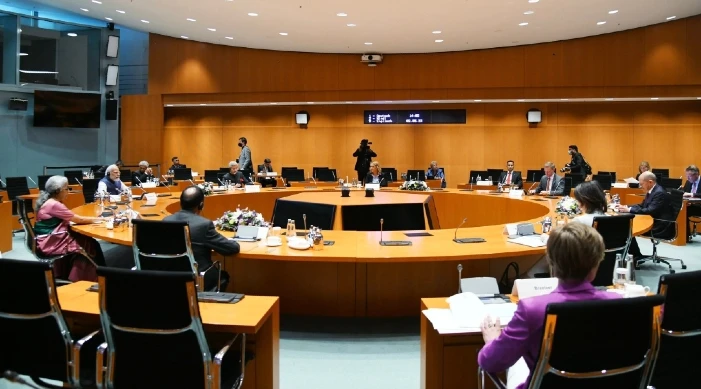The minister has proposed cooperation between India and Germany in a host of areas
Reiterating its commitment to environmental and climate causes, India has said that it has launched several initiatives to fulfil its commitment at COP 26 of achieving net zero emissions by 2070.
During delegation level talks with his German counterpart Steffi Lemke on Monday, Science & Technology Minister Jitendra Singh noted that the steps taken by India in this direction included the National Hydrogen Energy Mission.
The talks between delegations headed by Science & Technology Minister Singh and German Federal Minister for the Environment, Nature Conservation, Nuclear Safety and Consumer Protection Lemke in Berlin was held as part of the India-Germany Inter Governmental Commission.
According to the Ministry of Science & Technology, the agenda of the meeting was Adaptation to climate change, Biological diversity, Oceans and Artificial Intelligence for environmental protection.
"In view of the imminent future challenges on the climate and weather, Dr Jitendra Singh expressed interest to augment our cooperation in this field including Model Development, Application of Forecasts in the renewable energy and of course use of Artificial Intelligence/Machine learning," the ministry said.
He mentioned that Science & Technology has been one of the strategic pillars of bilateral partnership and suggested to explore possibilities of bilateral scientific cooperation in emerging areas of Weather and Climate Research, specifically, on trends of regional climate extremes and variability of vulnerable areas including tropics and high-latitudes.
Singh conveyed to his German counterpart that Indian Tsunami Early Warning Centre (ITEWC) at Indian National Centre for Ocean Information Services (INCOIS), Hyderabad provides early warning information for Tsunami related hazards to the Indian Ocean rim countries.
He added that India has been recognized as one of the Tsunami Service Providers (TSP) under United Nations Educational, Scientific and Cultural Organization - Intergovernmental Oceanographic Commission (UNESCO-IOC) and invited Germany to make utilization of this opportunity.
India is working towards Probabilistic Tsunami Hazard Assessment (PTHA) in the Makran region through UNESCO-IOC and funded by UNESCAP, where German experts and institutions are part of this initiative, Singh added.
During the talks, Singh proposed to develop bilateral cooperation in a host of areas including Probabilistic Tsunami Hazard Assessments and Early detection of tsunamis including ‘atypical tsunami’ generated by the under-sea landslides triggered by earthquakes.
"For bilateral cooperation in Ocean Exploration, Dr Jitendra Singh highlighted that the Blue Economy is an important dimension of Vision New India and proposed joint collaboration in areas like Coastal Marine Spatial Planning and Tourism, Marine fisheries, aquaculture, and fish processing, Coastal and deep-sea mining and offshore energy," the Ministry of Science & Technology said.
German Environment Minister Lemke reciprocated the proposal and briefed on German advancement in these areas and agreed to work out new collaboration, the ministry added.
 Contact Us
Contact Us  Subscribe Us
Subscribe Us









 Contact Us
Contact Us
 Subscribe
Subscribe
 News Letter
News Letter

